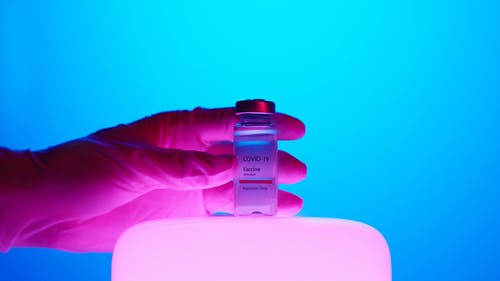Britain created history as it became the world’s “first country” to provide approval for “Oxford University and AstraZeneca” developed COVID-19 vaccine with the hope of curbing the rapidly spread of “a highly contagious variant of the virus”. The British government has already placed an order for “100 million doses of the vaccine” while its “vaccination programme” has pushed it ahead of “other countries”.
Britain was the first country to give approval to a vaccine that was co-developed by “Pfizer of the United States and Germany’s BioNTech”, as result, “hundreds of thousands” of Brits received vaccine before any EU countries or the U.S. started to even administer vaccine. While, the “AstraZeneca/Oxford shot” is likely to be given to people “most at risk from COVID-19” in the coming days.
The “UK Medicines and Healthcare products Regulatory Agency” gave its approval to the above mentioned vaccine whereby vindicating the step towards essential “mass immunisations” across the globe. However, the need to obtain the approval of trial data doesn’t still get ruled off while the approval is unlikely to come “so rapidly in the European Union or the United States”. Furthermore, Reuters informed:
“Uncertainty has swirled over the most effective dosing pattern for the AstraZeneca/Oxford vaccine since it released data last month showing a 90% success rate for a half-dose followed by a full dose, but only 62% - still usually more than enough for regulators - for two full doses”.
While, the MHRA stated that the “half-dose regimen” results were not analysed as it gave approval for “the regimen of two full doses”. Moreover, an official who was part of the MHR decision stated that the vaccine proved to be more effective when the doses were administered from a three months’ gap between each other. In the words of the “Chair of the Commission on Human medicines expert Working Group on COVID-19 vaccines”, Munir Pirmohamed:
“Effectiveness was high, up to 80%, when there was a three- month interval between first and second doses, which is the reason for our recommendation”.
While, the “Health Secretary”, Matt Hancock stated:
“The NHS (National Health Service) will be able to deliver these shots into people’s arms at the speed at which it can be manufactured”.
“I am also now, with this approval this morning, highly confident that we can get enough vulnerable people vaccinated by the spring that we can now see our route out of this pandemic.”
References:
reuters.com
Britain was the first country to give approval to a vaccine that was co-developed by “Pfizer of the United States and Germany’s BioNTech”, as result, “hundreds of thousands” of Brits received vaccine before any EU countries or the U.S. started to even administer vaccine. While, the “AstraZeneca/Oxford shot” is likely to be given to people “most at risk from COVID-19” in the coming days.
The “UK Medicines and Healthcare products Regulatory Agency” gave its approval to the above mentioned vaccine whereby vindicating the step towards essential “mass immunisations” across the globe. However, the need to obtain the approval of trial data doesn’t still get ruled off while the approval is unlikely to come “so rapidly in the European Union or the United States”. Furthermore, Reuters informed:
“Uncertainty has swirled over the most effective dosing pattern for the AstraZeneca/Oxford vaccine since it released data last month showing a 90% success rate for a half-dose followed by a full dose, but only 62% - still usually more than enough for regulators - for two full doses”.
While, the MHRA stated that the “half-dose regimen” results were not analysed as it gave approval for “the regimen of two full doses”. Moreover, an official who was part of the MHR decision stated that the vaccine proved to be more effective when the doses were administered from a three months’ gap between each other. In the words of the “Chair of the Commission on Human medicines expert Working Group on COVID-19 vaccines”, Munir Pirmohamed:
“Effectiveness was high, up to 80%, when there was a three- month interval between first and second doses, which is the reason for our recommendation”.
While, the “Health Secretary”, Matt Hancock stated:
“The NHS (National Health Service) will be able to deliver these shots into people’s arms at the speed at which it can be manufactured”.
“I am also now, with this approval this morning, highly confident that we can get enough vulnerable people vaccinated by the spring that we can now see our route out of this pandemic.”
References:
reuters.com






